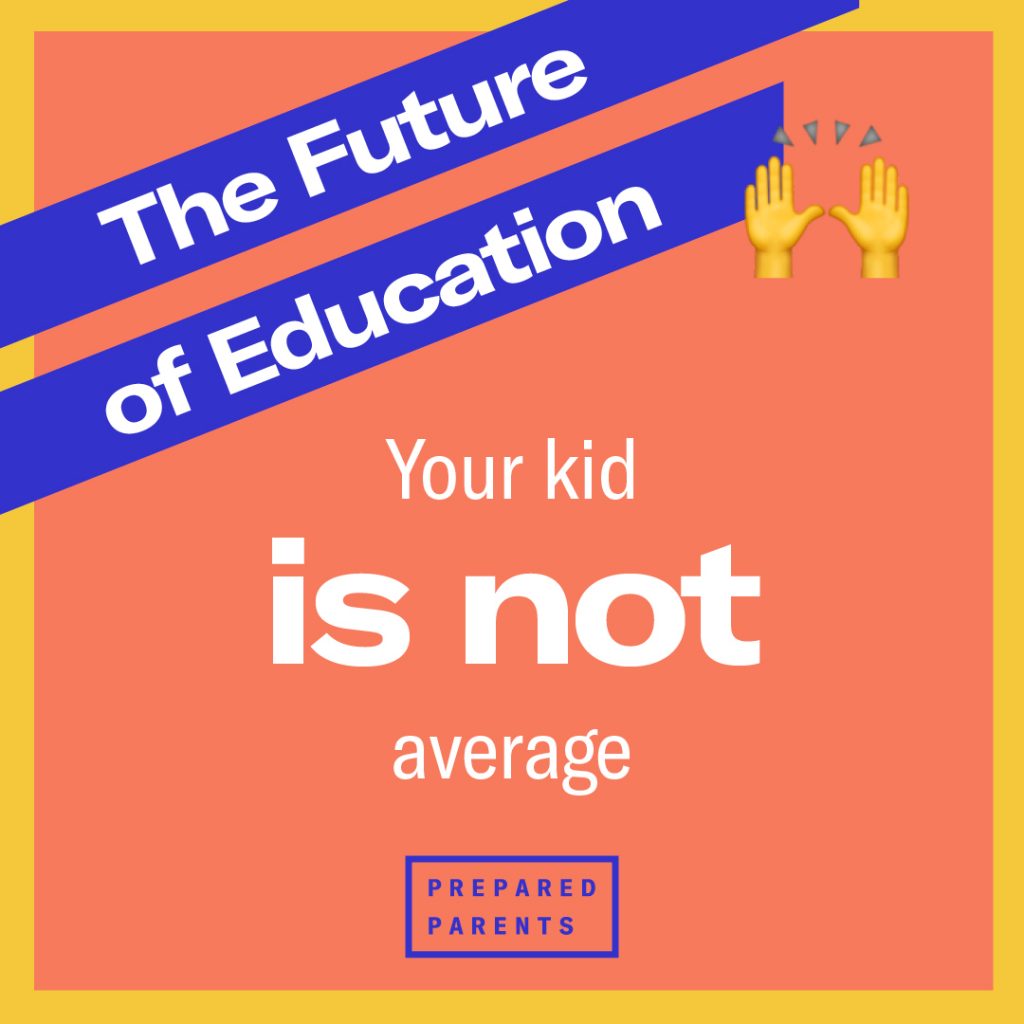This spring, school districts across the country did something once thought unthinkable. They canceled their annual high-stakes standardized testing due to the COVID-19 crisis, and the world did not come to an end.

There’s a silver lining here: an opportunity to reimagine standardized tests in a way that doesn’t kill the joy of learning in our kids. Education should be rooted in individual interests and how each child learns best. It should encourage creativity, agency, and self-direction and make our kids excited to go to school, instead of dreading it.
Right now, schools are asking parents to complete surveys providing feedback on how they should reopen in the fall. Let’s not squander this opportunity to create real, lasting change in the classroom. We continue to share some ideas for real change in our Future of Education series.
But first, a quick primer on the origins of standardized testing.
There is no such thing as an “average” person, explains developmental psychologist Todd Rose in his best-selling book, The End of Average: How We Succeed in a World That Values Sameness.
In the 1940s, the U.S. Air Force was experiencing a high amount of “pilot error” crashes, Rose shares in his book. After measuring 4,063 pilots on 140 dimensions to determine the new average size the cockpit should fit, a researcher discovered that the issue was that no pilot fit the average for the 10 most-important dimensions (including height, chest circumference, and sleeve length). The real issue was that there was no such thing as an average pilot.
And, there’s no such thing as an average brain. In a 2002 study, neuroscientist Michael Miller found that none of the individuals’ brains looked like the average brain, leading to this foundational concept of neurological research—the “average brain”— finally being challenged. Thanks, Dr. Miller!
While science has invalidated the use of averages in measuring people, our education system was built on, and continues to operate within the confines of, averages. The vision for the American public education system was developed by a small group of businessmen—led by oil tycoon John D. Rockefeller—who formed the General Education Board. The men leaned on the wisdom of Frederick Winslow Taylor, who had become a household name for his role in standardizing factories.
“Thorndike’s guiding axiom was ‘Quality is more important than equality,’ by which he meant that it was more important to identify superior students and shower them with support than it was to provide every student with the same educational opportunities.”
– Todd Rose
Co-founder and President of Populace, faculty member at the Harvard Graduate School of Education
Standardization taught students how to comply, be on time, and follow directions. One influential architect, though, thought there was one thing missing: ranking. Psychologist Edward Thorndike—in charge of the largest superintendent training program in the country—advocated for the systemic separation of inferior and superior students—the below-average and average, versus the above-average. By measuring students’ deviations from the average, educators could create a normally distributed bell curve that helped them identify “inferior” and “superior” students. In fact, systemic inequities were built directly into the ranking system.
From this mission to rank and differentiate came the onslaught of standardized tests. The SAT, for example, developed by psychologist and eugenicist Carl Brigham and first adopted by Harvard, has become one of the de facto standardized tests that has become a kid’s golden ticket to college. A college degree means a chance at higher-paying jobs and job security. In her book, Prepared: What Kids Need for a Fulfilled Life, author Diane Tavenner calls it “the nuclear arms race to college admissions.”
Some of our most important systems are designed around the average person: public education, college entrance, job search, job performance review. But what can we do to change that?
Parents can take these three steps specifically to rethink “average”:
- Opt-out of the parenting race
- Adopt a more purposeful approach to your kid’s learning
- Future-proof your kid by teaching them Universal Skills and Habits of Success.

